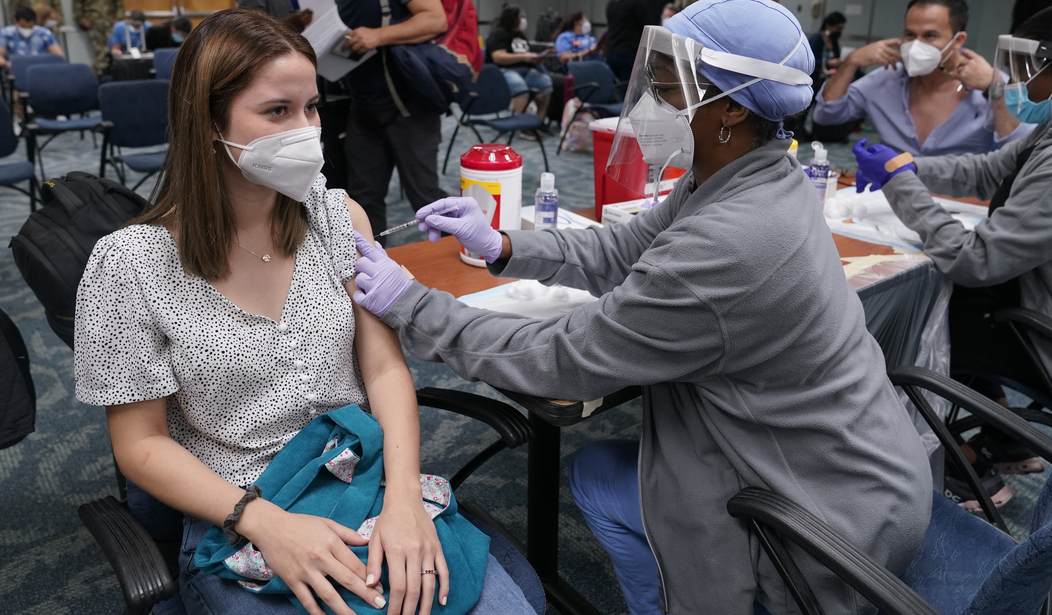The Delta Variant of the coronavirus is sweeping across the country at an alarming rate, with new cases up 40 percent over the last week. The number of serious illnesses and deaths hasn’t risen nearly as fast, but it’s the number of breakthrough infections that is worrying some public health officials.
Breakthrough infections occur in fully vaccinated people who contract COVID. Evidence is still scant, but preliminary studies show that those numbers are climbing, although the severity of the infections appears to be mild compared to those of the unvaccinated.
It’s unknown whether the breakthrough infections are the result of a fall-off in immunity derived from the Pfizer and Moderna vaccines or the virulence of the Delta Variant.
If it’s the former, the Biden administration will have a big decision to make on whether previously vaccinated Americans need a booster shot.
The question of a booster shot has been asked since the vaccines came to market. Only data about how the vaccines perform in the real world can tell us whether a booster shot is necessary or not.
The Biden administration is going to proceed as if a booster shot will be necessary. This has public health and political ramifications that will affect the decision-making of Biden and his team for the foreseeable future.
On Thursday, a key official at the Centers for Disease Control and Prevention said the agency is exploring options to give patients with compromised immune systems third doses even before regulators broaden the emergency use authorization for coronavirus vaccines, a step that could come soon for the Pfizer vaccine.
Dr. Amanda Cohn, the chief medical officer of the C.D.C.’s immunizations division, told an advisory committee to the agency that officials were “actively looking into ways” to provide certain people access to booster shots “earlier than any potential change in regulatory decisions.”
Most Americans who are vulnerable to serious illness from COVID know who they are and have already decided that the vaccine is necessary for their health. That eliminates the vaccine skepticism as a reason not to get a booster shot.
But there are millions of Americans who have been vaccinated but may question the need for a third jab. This is especially true when there’s scant evidence to support it. There is an ongoing study in Israel of the vaccine’s effectiveness that shows a mild loss of efficacy over time and Pfizer has an ongoing study showing a reduction in effectiveness from 94 percent to 80 percent after six months.
Some government officials question whether the booster is necessary.
With so little data yet public, many health officials and experts have spoken cautiously about booster shots. Dr. Paul A. Offit, a member of the Food and Drug Administration’s outside advisory committee of vaccine experts, said a rise in mild or moderate cases of Covid-19 among vaccinated people did not necessarily mean a booster was required.
“The goal of this vaccine is not to prevent mild or low, moderate infectious disease,” he said. “The goal is to prevent hospitalization to death. Right now this vaccine has held up to that.”
Since vaccines aren’t mandated — yet — the government isn’t likely to mandate a booster shot. But the advisory to get one will not help unvaccinated people to make up their minds about getting the jabs.










Join the conversation as a VIP Member